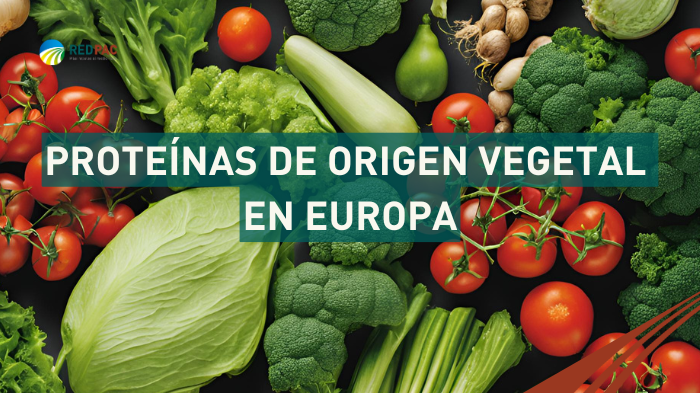
29 de November de 2024
The European Union (EU) imports 19 million tonnes of plant-based products rich in vegetable protein because European production does not cover the agri-food market.
- The European Union (EU) imports 19 million tons of plant-based products rich in vegetable protein because European production does not cover the agri-food market.
- The Common Agricultural Policy (CAP), along with national initiatives, includes a series of fact sheets with exhaustive market analyses and proposed interventions to reduce this deficit.
Between 2023 and 2024, the European arable crop sector produced 64 million tons of crude protein. Most of this came from forage, followed by cereals and oilseeds, while dried pulses accounted for only 1.1 million tons . As a result, there is a gap between supply and demand, creating the need to import plant proteins.
To curb this dependence, the European Council , through the Versailles Declaration , called for increased production at the continental level. In response, the European Commission (EC) has published a series of fact sheets containing a comprehensive analysis of the plant protein market, covering everything from supply and demand to interventions under the Common Agricultural Policy (CAP) and national initiatives.
The vegetable protein market in Europe
The new EC documentation covers key aspects of plant protein supply and demand in the EU:
- Main sources: fodder and rapeseed.
- Import dependence: Despite this, the EU remains dependent on imports of soybeans and soybean meal, which are essential for livestock feed.
- Protein processing: A large portion of plant proteins produced are destined for livestock production, highlighting a critical connection between these sectors.
CAP interventions
To avoid this deficit and reduce imports, the CAP introduces a series of interventions:
- Direct income support: 20 CAP strategic plans use coupled economic incentives to promote protein crops.
- Eco-schemes: Most Member States promote the inclusion of protein crops in crop rotation systems for their climatic and environmental benefits.
- Sectoral interventions: Only two countries have implemented new sectoral interventions for protein crops under the current CAP.
Similarly, Member States are developing projects at the national and regional levels to promote more sustainable and resilient supply chains. These initiatives range from the use of protein in food and protein alternatives to comprehensive approaches that consider the entire value chain, from production to consumption.
Meanwhile, the Joint Research Centre (JRC) has analyzed key factors and potential synergies to advance toward a more robust and resilient protein system.
Challenges and challenges of the EU
Despite progress, the EU faces a significant challenge in balancing the supply and demand for plant proteins. Since 2015, €644 million has been invested in 125 projects under the Horizon 2020 and Horizon Europe programs, whose objectives are highly structured and concise: developing more sustainable and competitive agricultural systems and food chains; improving the cultivation and use of legumes and other protein-rich crops; and narrowing knowledge gaps in alternative proteins and optimizing their use in the livestock sector.











